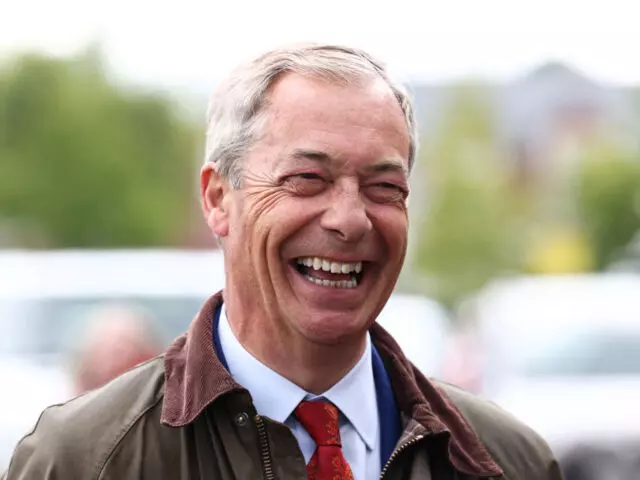Nigel Farage, the leader of Reform UK, has announced that he is open to taking over the Conservative Party and incorporating them into his party. The move comes as Farage looks forward to the likely fallout from July’s election, which sees the opposition left-wing Labour Party on track to win an overwhelming victory and take control of the government.
Farage has repeatedly stated that the question is not now who will form the next British government, but rather who will have the important job of opposing it, and who will challenge it for power at the next election in 2029 or before. In normal times of Britain’s legacy two-party system, this would be the Conservatives who are presently in power. However, they have upset their own voters so badly that there is a developing feeling the party deserves to win zero seats and to vanish for good.
This would leave Mr Farage as the leader of the opposition, he hopes. He told LBC: “We need a coherent voice of opposition in Parliament, and in the country. And do you know what… I believe I can do that better than the current Conservative Party. Separately this week, he had said: “they’re done, they’re toast and they thoroughly deserve it in my opinion.
Pressed on whether he would consider leading the Conservative Party itself by the host, Farage demurred but accepted he’d be willing to lead a merged Reform – Conservative party, an outcome not unlike the Canadian example where the legacy Conservatives were defeated by the Canadian Reform Party before the two merged.
Farage said of such an outcome: “they may be dead. They may well be dead, this may well be the end of their journey. I would be prepared to lead the centre right in this country, a centre right that stands up for small business, a centre right that believes in border, a centre right that isn’t scared of standing up for the British people.
Farage has always been eager to point out that his parties and political causes — like Brexit, UKIP, and now Reform — have pulled votes in from the left, as well as the right. And this reflects a growing trend around the world, like with Trump in the U.S. and populists in Europe, where new movements or new alliances have brought in working-class communities who traditionally voted left but now see controlling immigration as a major policy issue being ignored by legacy parties.
Nevertheless, serious difficulty remains, if from nothing else then Britain’s electoral system, which rewards entrenched, long-established parties and presents near-insurmountable barriers to entry to newcomers or those falling by the wayside like the Liberal Democrats. The Brexit leader said of Britain’s First Past the Post electoral system: “If I was leading a party like this in Italy, I’d be the Prime Minister. If I was in American politics through open primaries I could hijack the Conservative Party like my old friend did back in 2015-16. So I happen to find myself in the country that I love in the most difficult of all positions.

